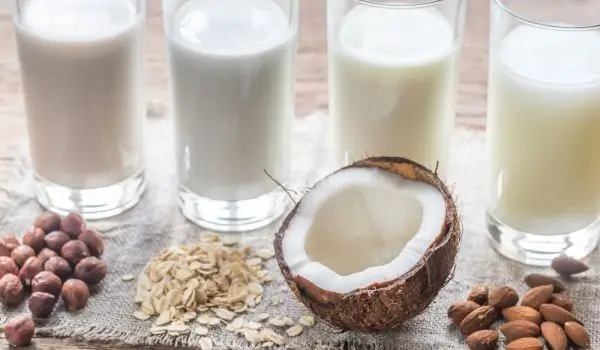2025 Author: Jasmine Walkman | [email protected]. Last modified: 2025-01-23 10:18
Everywhere in the world cow's milk is so common that there is no need for a description. Whether it is an addition to cereals or in the form of a glass of cold milk, this drink is a key element in our diet.
Milk is available in different forms, which vary in their fat content. The declared 2% or 1.5% of the box corresponds to the percentage of fat that the milk has. This of 2% or 1.5% is called low-fat, because full-fat is 3.5% fat.
The practice of drinking cow milk dates back to 6000-8000 BC. Milk and dairy products were so deeply valued in ancient Egypt that only the rich could afford them. In Europe, the tendency to prefer cow to sheep's milk began around the 14th century, and its pasteurization in the late 19th century.
Composition of cow's milk
Cow's milk is a source of hundreds of chemicals that are extremely important for human health. Cow's milk is a valuable source of protein and calcium. It is also of great importance because of the milk sugar (lactose) and milk fat contained in it, which are not
found in this form and structure in other foods.
It is extremely rich in vitamins C, A, B and K, calcium, protein, sugars, taurine and trace elements.

Selection and storage of cow's milk
- When buying milk, always check the date printed on its packaging.
- Choose milk from the coldest part of the refrigerators in the store.
- Milk should always be kept in the refrigerator.
- Always close the open milk box tightly to prevent foreign odors that could change its taste.
- Avoid keeping it on the refrigerator door, as every time you open it you expose it to heat, which leads to its spoilage.
Cow's milk in cooking
Cow's milk is one of the most widely used products worldwide. It is used to make some of the most delicious cheeses and yellow cheeses, it is part of a number of dishes and pastries. Cow's milk is used to make a huge number of sauces all over the world, one of which is the famous Béchamel. One of the most famous products of fresh cow milk is yogurt. Cow's milk is a major ingredient in many confectionery creams and mousses. Cow's milk goes very well with rice and muesli, and millions of people around the world use it to supplement their coffee. Without cow milk many people's favorite cappuccino would be unthinkable.

However, before being consumed, cow's milk must undergo heat treatment to neutralize the bacteria.
Benefits of cow's milk
- Contains calcium - a mineral that takes care of many other things besides the health of our bones. Milk is best known for its calcium content, which plays a major role in caring for our bones. Recent studies show that this mineral not only helps strengthen bones, but her;
- protects column cells from cancer-causing chemicals;
- prevents the loss of bone strength, which may be the result of menopause or specific injuries, such as those caused by rheumatoid arthritis;
- helps to avoid migraine attacks;
- Helps in the fight against overweight in children. It has been found that eating foods rich in calcium has a negative effect on body fat. This is an extremely important finding, especially for the United States, where the percentage of overweight children has doubled in the last three decades;
- Consumption of calcium-rich dairy foods accelerates the burning of fat after eating. In a study of normal weight women aged 18-30 years who were on a diet poor or rich in calcium, after 1 year it was shown that those who ate a diet rich in calcium,have burned 20 times more fat than others;
- Dairy foods protect against metabolic syndrome. By including milk or other dairy products in our healthy diet, the risk of metabolic syndrome can be reduced by up to 62%. Enjoy a glass of fresh milk and / or a bucket of yogurt, cheese or yellow cheese every day;

- The calcium contained in dairy foods protects us from breast cancer. Studies have shown that calcium provided by dairy products reduces the risk of breast cancer by up to 50%, and in pre-menopausal women - up to 74%. If you are allergic to cow's milk, you can try goat's or sheep's;
- Vitamin D, which is contained in milk, helps maintain proper levels of calcium in the blood;
- Contained in cow's milk vitamin K also takes care of our bones, providing us with 12.2% of the daily value of vitamin K;
- Dairy foods are better than calcium supplements for healthy girls' bones. A study of adolescent girls whose bones are exposed to the stress of rapid growth has shown that eating dairy foods is much more effective than taking calcium supplements;
- Milk is a good source of protein and vitamin B, which protects our cardiovascular health.
- It is rich in vitamin A. When our levels of vitamin A are low, we are prone to infections, including ear problems, frequent colds, etc. By consuming one glass of cow's milk a day, we provide 10.0% of the daily value of vitamin A.
Harm from cow's milk
Cow's milk not recommended for people who suffer from lactose intolerance or, in more severe cases, suffer from allergies. Cow's milk should not be consumed too often to avoid stomach irritation. Be alert for side effects from your body.
Recommended:
Goat's Milk Against Cow's Milk: Which Is Healthier?

You are probably familiar with goat's milk cheese like Feta, but have you ever considered yes drink goat's milk ? If you are a fan of organic milk and the smaller footprint on the environment, you may be interested in trying goat's milk if you have not yet found the non-dairy substitute you prefer.
What To Replace Cow's Milk With

No matter how distracted you are, you must have noticed the increasing substitutes for cow's milk, namely vegetable milk, on store shelves. They are soy, rice, oats, etc. Their price is higher because demand is still relatively low. And for the most part, these milks are highly processed and full of sugar.
Forget About Cow's Milk - Drink Only Vegetable Milk

If you have decided to do something good for yourself and your body, stop using animal milk. There are alternative solutions and these are vegetable milks. Your body will be very grateful for this decision. Here are the benefits of some types of milk of plant origin.
Cow's Milk Is Richer In Vitamin D Than Sheep's Milk

Various factors predispose more and more people to consume milk other than cow's milk - goat's, sheep's, almond, made from soy and others. The reasons are often lactose intolerance in cow's milk or preferences for other flavors of the offered dairy products.
Here Is The Milk, Which Is 5 Times More Useful Than Cow's Milk

The benefits of consuming camel's milk are significantly more than other types of milk such as cow's milk. Studies have concluded that camel's milk is healthier than cow's milk. It is extremely similar to human mother's milk, which makes it easy to digest, not to mention that it is much more nutritious and good than cow's milk.

